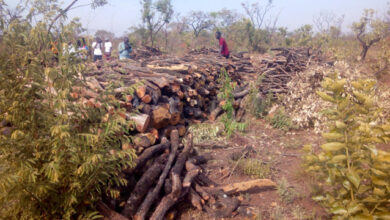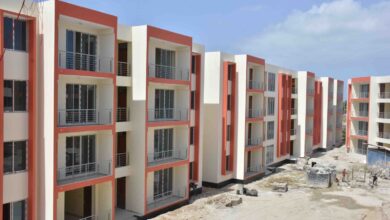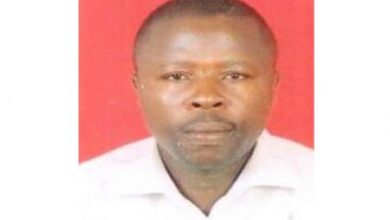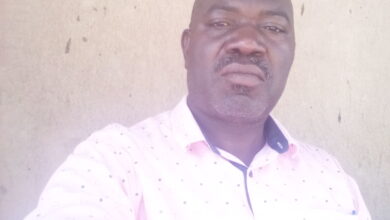Dear TotalEnergies E&P Uganda: drill the oil, not people’s lives!
Scared of such an unfortunate experience, families are choosing to voluntarily migrate and resettle themselves in places they think are safe for their lives.

Op-Ed: Children are suddenly asked to get into the house as I approach this home. “Your round hat looks like the hats worn by TotalEnergies Uganda CLOs,” my contact person tells me. He is the son from this village. But it seems this family has not yet recognized him.
Bundled up in his overalls, helmet, and safety boots, he is coming back from the Tilenga Central Processing Facility (CPF) in Kasenyi, where he works as a steel fixer.
A combination of my hat and his overalls are enough to bring back images of the men who visited Mpairwe’s home before the police came in the night to arrest her and take her into detention at Buliisa Central Police Station alongside her two-year-old granddaughter.
Grace Mpairwe, in her 60s, is a widow and the breadwinner for her family. Her home is located inches away from the chain link fence of the ZPEB-1502 oil rig, which is undertaking drilling operations at Ngiri 3 well pad in Kirama Village.
She was arrested and incarcerated alongside other two women over allegations of attempting to burn the oil rig. Something she refutes, bowing her head as tears rolled down her cheeks. One of her colleagues, with whom they were detained, cannot talk to us, and she asks us not to mention her name anywhere in our story. Not even to say that our eyes saw her.
She was jailed for two months at Masindi government prison. And although she is out on court bail, she still bears the burden to travel about 100 kilometers to report to the court. The next hearing of her case is in a week, and she is looking for someone to buy her goat in order to raise money for her transportation to Masindi High Court. Yet another woman has just returned from self-imposed exile, where she sought refuge to escape the wrath of Tilenga. Grace must have been very lucky, for she spent only four days in cells at Buliisa Police station.
These arrests happened after the children in the neighbourhood and their mothers went to peacefully demonstrate at the entry gate of the oil rig over excessive noise pollution and the vibrations. Which, they say, had made it hard for school-going children to have sufficient sleep in the nights? Mpairwe, who is hypertensive, insists that on that day, she wasn’t feeling well. She was never part of the demonstrations.
Unknown people had burned the bushes on the western side of the oil rig’s fence. So the women and the children who demonstrated at the entry gate of the oil rig were being suspected to have been the ones behind the bushfire that affected part of the fence.
When I visited Kirama village to listen to the story of Mpairwe on November 10, 2023, I arrived at around 3pm, and the family was preparing to have their late lunch meal. Inside the oil rig fence, very few meters away from this home, they were emptying the toilets. As the wind blew our direction, the hazardous odor from the human stool strongly irritated our smell. Big fat flies from the toilets swarmed around the family food as they struggled to keep them away in vain.
“This is how we live here,” Mpairwe said. “When the bulldozers are levelling or compacting the ground, here where we are sited, you would be shaking. You go and see, the entire house has cracks. In the night, the house shakes, the bed shakes, things fall hard, and you hear voices of people mixed in the noise as if they are being strangled outside. You lose peace completely, but you have nowhere to go; this house is all we have as a home.”
Mpairwe’s story is just a droplet in the ocean of stories from the communities and families neighboring the Tilenga oil and gas infrastructures. Without any compensation, we may never tell how these disruptions and pollutants affect these people mentally, spiritually, or even physically on a daily basis, yet they will live with the fatal health damages for the rest of their being.
There is growing fear for voluntary displacement of people with the network of flow lines that are currently being scattered all over, in lower Buliisa. Asking people to keep buffer zone areas from the pipelines without any compensation on their land or resettlement is fraud. What then happens to these people in case of an oil spill in the future? Scared of such an unfortunate experience, families are choosing to voluntarily migrate and resettle themselves in places they think are safe for their lives.
The inefficiencies of the Tilenga resettlement policy, which compensates Project Affected Persons (PAPs) and not Project Affected Communities (PACs), are just overwhelming. TotalEnergies E&P Uganda TEPU and the government of Uganda are being complacent, indifferent, and dangerously insensitive about the future risks of the oil and gas project on human life.
And by doing so, purporting a notion that human beings in the communities neighbouring the oil and gas infrastructures are expendables whose plights can be treated as an equivalent of collateral damage.
The author is Nelson Byaruhanga, an Indigenous journalist, social critic, novelist, and filmmaker.
Disclaimer: As UG Reports Media LTD, we welcome any opinion from anyone if it’s constructive for the development of Uganda. All the expressions and opinions in this write-up are not those of UG Reports Media Ltd. but of the author of the article.
Would you like to share your opinion with us? Please send it to this email: theugreports@gmail.com.






